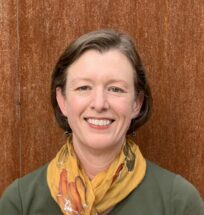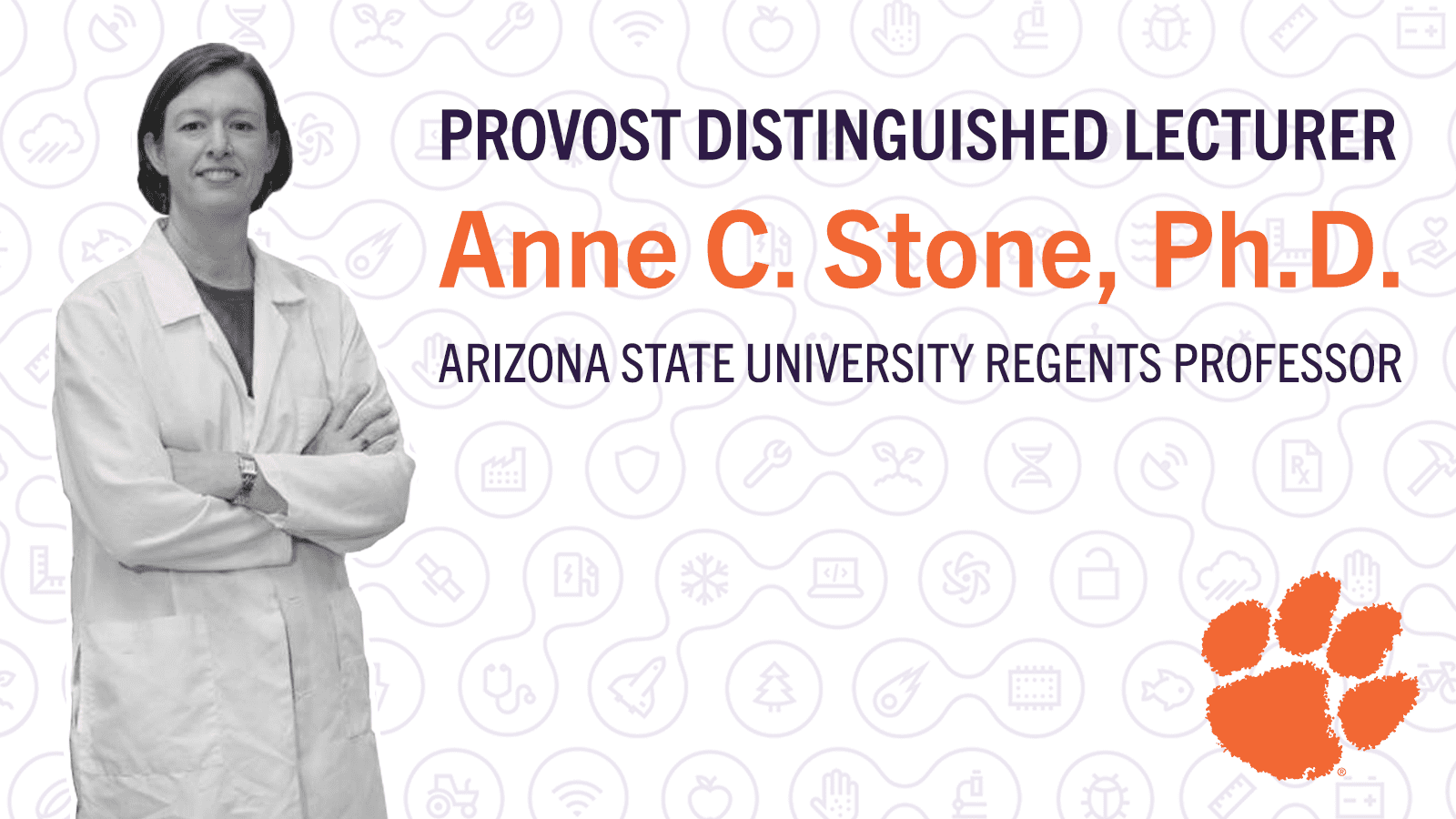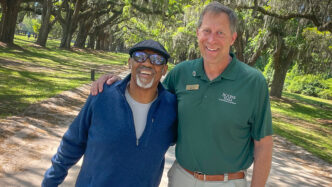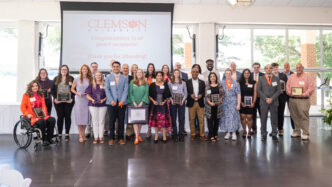
Clemson University’s Office of the Provost and the College of Behavioral, Social and Health Sciences are proud to host Arizona State University Regents Professor in the School of Human Evolution and Social Change Anne C. Stone as a Provost Distinguished Lecturer on Thursday, Oct. 19.
Leprosy, the Black Death and the White Plague:
What Ancient DNA tells us about Pathogens
Thursday, October 19 | 9:30 a.m. to 10:30 a.m.
Watt Family Innovation Center Auditorium
No registration required.*
*Accommodations are available by request.
Please contact Berinthia Allison at balliso@clemson.edu
as early as possible prior to the event to help ensure availability.
Event Description
The COVID-19 pandemic is just one of many epidemics that has devastated human societies over the past millennia. Arizona State University Regents Professor, Anne C. Stone uses advanced genetic technology to recover ancient DNA from human skeletal remains to advance our understanding of the relationship between infectious diseases and the evolutionary history of humans and great apes.
Her pioneering research addresses questions regarding the origins and evolution of pathogens that continue to impact human populations today such as those causing leprosy, plague, and tuberculosis.
Stone’s talk will demonstrate how ancient DNA analysis can explain our historical past and inform future understandings of reemerging infectious diseases.
About Anne C. Stone
An anthropological geneticist, Stone extracts DNA from ancient bones to study the history of population patterns and is performing breakthrough research on humanity’s evolutionary history tracing back to the great apes, including the epidemiological history of tuberculosis and leprosy.

Stone is an editorial board member of the Philosophical Transactions of the Royal Society, Series B, her specialization and central area of interest is anthropological genetics. Stone’s research focuses on population history and understanding how humans and the great apes have adapted to their environments, including their disease and dietary environments. She has been a Fulbright Fellow (1992-93) and a Kavli Scholar (2007), and, in 2011, she was elected a fellow of the American Association for the Advancement of Science. In 2016, she was elected to the National Academy of Sciences. She has served on the editorial boards of the American Journal of Physical Anthropology, the Journal of Human Evolution, Evolution, Medicine, and Public Health and Molecular Biology and Evolution.







